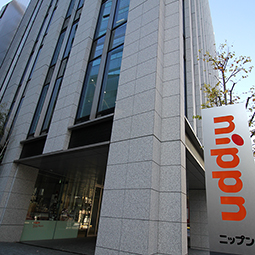Waste Reduction and the Resource-Circulating Society
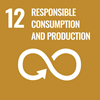
Approach to Resource Circulation
The NIPPN Group is committed to the effective use of resources to create a resource-circulating society. We consider food loss as a key issue, so that we are committed to minimize the amount of waste generated from the production process as much as possible, develop upcycled products using food by-products and provide products to food banks.
We also comply with relevant laws such as "Act on Waste Management and Public Cleansing," "Act on Promotion of Recycling and Related Activities for Treatment of Cyclical Food Resources," and "Act on the Promotion of Sorted Collection and Recycling of Containers and Packaging," as well as strive to handle waste appropriately.
Waste Management
Although our food business has a relatively low environment impact among manufacturing industries, we believe "Reduction of Waste Generated" by our business activities is an issue that needs to be addressed. We will work for recycling waste and other resources.
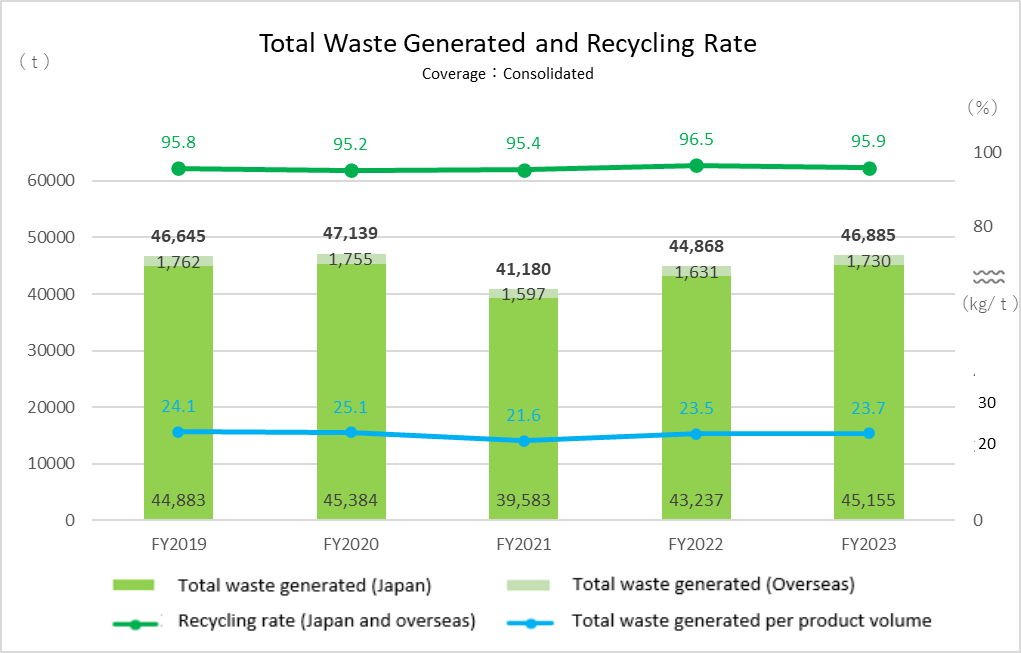
| FY2019 | FY2020 | FY2021 | FY2022 | FY2023 | ||
|---|---|---|---|---|---|---|
| Total waste generated (t) | Japan | 44,883 | 45,384 | 39,583 | 43,237 | 45,155 |
| Overseas | 1,762 | 1,755 | 1,597 | 1,631 | 1,730 | |
| Japan and overseas | 46,645 | 47,139 | 41,180 | 44,868 | 46,885 | |
| Recycling rate (%) | Japan and overseas | 95.8 | 95.2 | 95.4 | 96.5 | 95.9 |
| Total waste generated per product volume (kg/t) | 24.1 | 25.1 | 21.6 | 23.5 | 23.7 |
Zero Emission
In FY2023, total 16 business sites of our 7 Group companies achieved zero emissions.
※ (More than 100 tons/year of total waste generated).
| Company name | Business sites |
|---|---|
| NIPPN CORPORATION | Yokohama, Chiba, Isesaki Frozen Food, Ryugasaki, Kobe-Konan, Fukuoka |
| Matsuya Flour Mills Co., Ltd. | Kaminokawa |
| OHMY Co., Ltd. | Atsugi |
| Fast Foods Co., Ltd. | Hachioji, Musashi, Hidaka, Numazu |
| Fast Foods Fukushima Co., Ltd. | Koriyama |
| Fast Foods Tsukuba Co., Ltd. | Tsuchiura |
| NPF Japan Co., Ltd. | Chiba, Nagoya |
Reduction of Food Loss
As part of our ISO 14001 activities, we have set environmental targets for the reduction of food loss. In FY2023, we exceeded the goal of developing 2 products annually, and developed 12 new products, including products in trays for single servings.
External Evaluation
In recent years, there is an active worldwide movement to switch product containers and straws from plastic to paper.
As part of our efforts to address the problem of marine plastics, we use eco-paper trays made from unbleached wood pulp for our Frozen Food "One Plate Meal" series to reduce the amount of plastic waste generated in homes.
As a result of these activities, we received an award from the Minister of Agriculture, Forestry and Fisheries of Japan in the environmental division (category of 'promotion of energy-saving and other environmental measures') of "the 41st Food Industry Excellent Company Awards," which was sponsored by the Organization of Food-marketing Structure Improvement in Japan, and supported by the Ministry of Agriculture, Forestry and Fisheries of Japan.
The award is a recognition of our Group’s commitment to environmental preservation activities, and we will continue to make further efforts in the future.
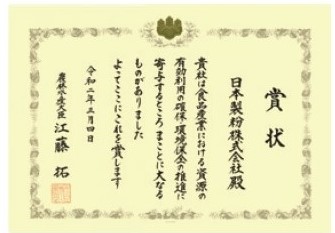
Minister of Agriculture, Forestry and Fisheries' Award Certificate
Appropriate handling of Chemical Substances
Management of Chemical Substances
Our Group does not use any substances subject to laws concerning PRTR* in the manufacturing process. Meanwhile, at business sites where food analysis, etc. is conducted, chemical substances containing substances subject to laws concerning PRTR are used as analytical reagents, but the liquid wastes are properly handled as specially controlled industrial waste after use.
*Laws concerning PRTR (Pollutant Release and Transfer Resister) : A common name for laws that require notification of emissions and transfers of designated chemical substances into the environment.
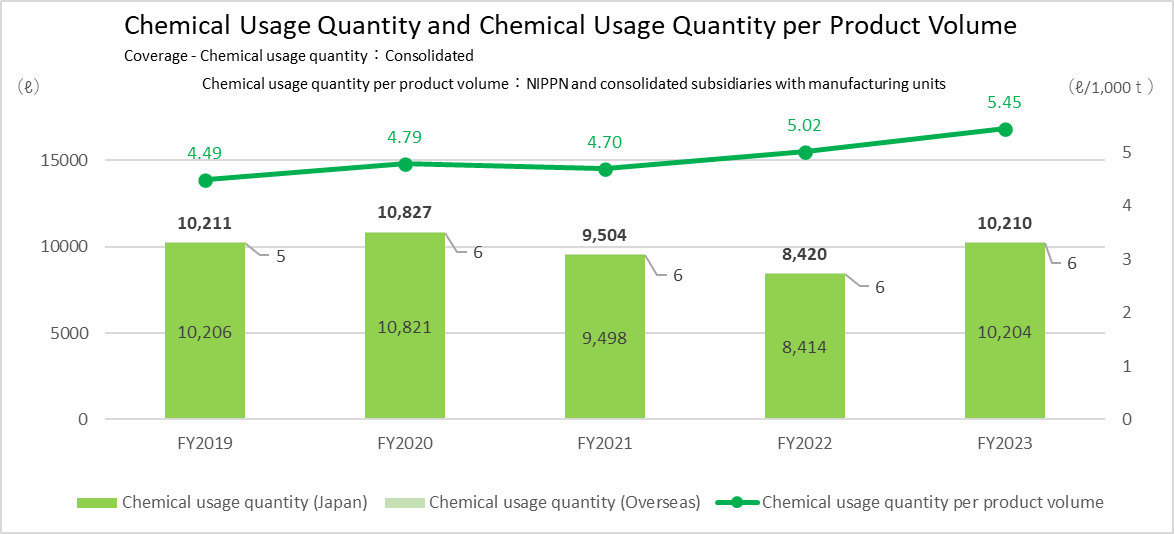
| FY2019 | FY2020 | FY2021 | FY2022 | FY2023 | ||
|---|---|---|---|---|---|---|
| Chemical usage quantity (ℓ) | Japan | 10,206 | 10,821 | 9,498 | 8,414 | 10,204 |
| Overseas | 5 | 6 | 6 | 6 | 6 | |
| Japan and overseas | 10,211 | 10,827 | 9,504 | 8,420 | 10,210 | |
| Chemical usage quantity per product volume (ℓ/1,000t) | 4.49 | 4.79 | 4.70 | 5.02 | 5.45 |
PCB Waste Management
Our Group strictly stores and manages equipment (transformers, capacitors, etc.) containing polychlorinated biphenyl (PCB) that was used in the past complied with the laws and regulations. In accordance with the Act on Special Measures concerning Promotion of Proper Treatment of PCB Wastes and other related laws and regulations, we promote the detoxification treatment of PCBs by entrusting the government-approved treatment facilities.
Soil Contamination Countermeasures
Our Group investigates the status of soil contamination and take appropriate countermeasures when selling / purchasing land, as well as disclose appropriate information.
